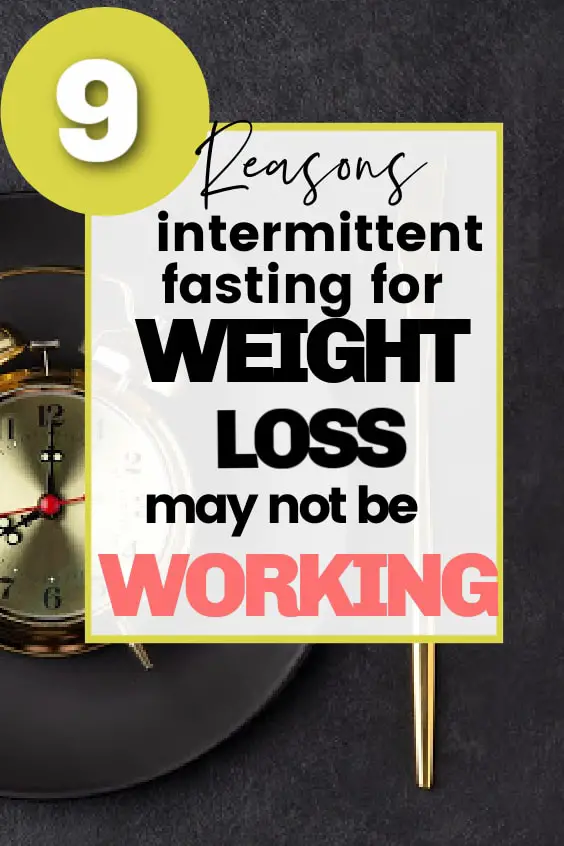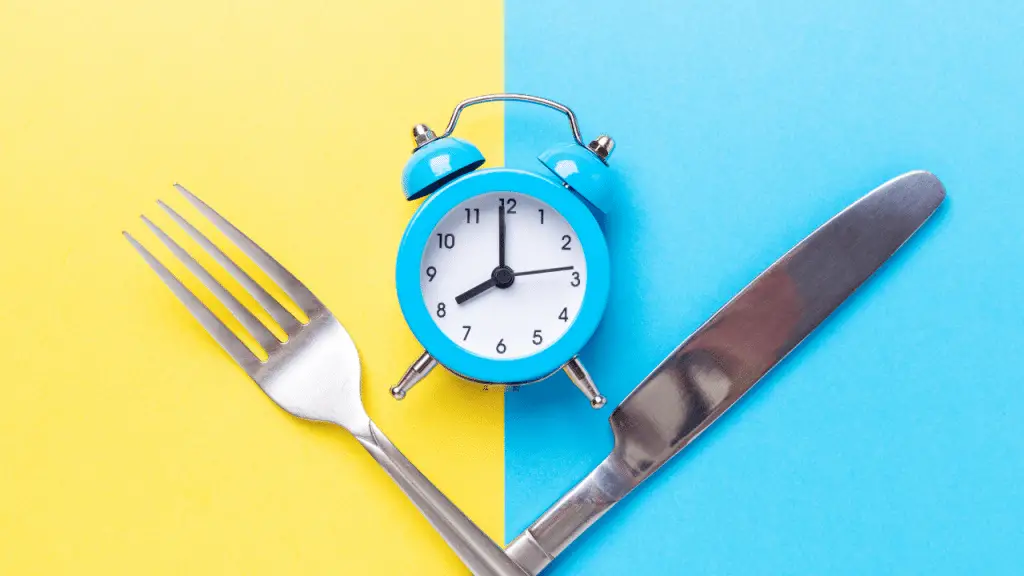When people get started with intermittent fasting for weight loss, they are filled with hope. Usually, hope to lose weight fast and effortlessly. Many are quick to give up when they don’t get the results they were hoping for. I know this because that was me about 15 years ago. In this post, I am going to go through some of the reasons intermittent fasting for weight loss may not work to help you avoid the most common pitfalls.
Most Common Reasons Intermittent Fasting for Weight Loss May Not Work
Some of the most common reasons intermittent fasting for weight loss may not work are simply some of my Top 11 Simplest Tips to Lose Body Fat Fasting reversed. After all, if I tell you to get proper sleep to lose weight with intermittent fasting, it makes sense that one reason you are not losing weight is that you are not getting enough sleep. But don’t worry, this post is not just the same thing in reverse. The thought process follows a somewhat different path. Sometimes, hearing the same things said differently is just what we need to take action.
1. Your Fasting Window Too Short
I would say that this is the most common reason why intermittent fasting for weight loss may not work. In many people’s minds, intermittent fasting is just about skipping breakfast. It’s so much more! There is a metabolic switchover that occurs when you fast long enough (we will get into that in another point), but besides that, it’s easy to eat too much during an 8-hour eating window. For me, the most doable window that yielded the best results was the 20:4 window. It’s much harder to eat too much during a 4-hour window, but you have enough time to eat enough and get the nourishment your body needs.
Not Losing Weight on OMAD
Many people are trying OMAD (also known as One Meal a Day or the 23:1 method) for weight loss and achieving impressive results. However, some people either reach a plateau or never see the results they were hoping to see. That’s why I created the post 7 Reasons You Are Not Losing Weight on OMAD.
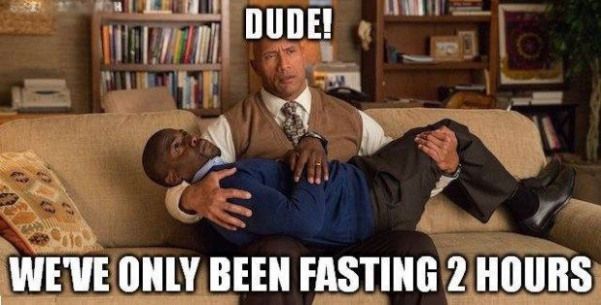
2. You Are Consuming Too Many Calories During Your Eating Window
This point obviously ties in with the length of your eating window, but there is more that I wanted to address here. We often talk about the calories-in calories-out controversy. In my post How Long Does It Take to Lose 20 lbs?, I explain the various factors that impact how your body will burn the calories you consume. Here I would like to talk about your metabolism a bit.
My Metabolism Is Slow, How Can I Fix It?
There are so many books on the market that claim to reset your metabolism. In fact, I may have a few! Many women are under the impression that they should be able to eat more and still lose weight and that’s what makes these books so popular. The truth of the matter is, most of us underestimate how much food we consume and overestimate how much we should be able to consume. I understand! Eating is enjoyable!
However, it’s helpful to remember that a slow metabolism is not necessarily a bad thing. For me, the revelation came a year or two ago during an online Fasting Summit. Dr. Joel Fuhrman was talking about this exact topic. He mentioned that a slower metabolism explains longer lifespans. A pretty fascinating discovery, if you ask me! Why not start embracing what you think is a “slow metabolism”? You will save time in the kitchen, save money on groceries, and learn to savor the nourishing foods you do get to eat.
Working Out to Increase Your Metabolism
Now that we got the curse of a “slow metabolism” out of the way, we can address the natural slowing down of your metabolism that occurs with age. Muscle cells use more energy than fat cells and as you age your muscle mass declines unless you work to preserve it. That’s where strength training comes in. I am a big fan of strength training and high-intensity interval training. Learn more in my post Do This 15-MInute Workout 4 Times a Week to Get Rid of Your Muffin Top.
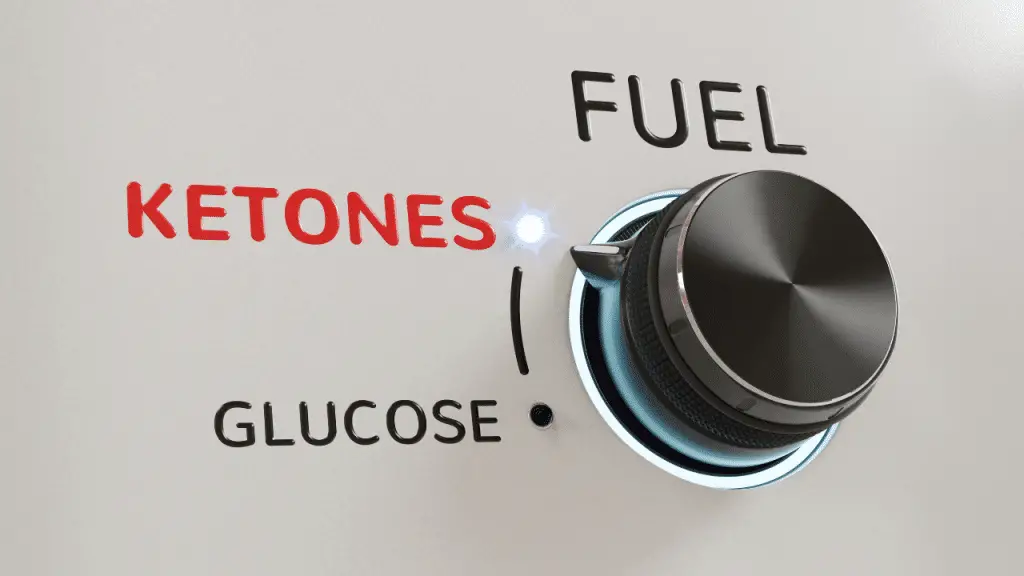
3. Your Body Is Not Switching to Fat for Fuel
What do I mean when I say “switching to fat for fuel”? I mean after your body has used up the glycogen available, it will start using your fat stores to produce ketones for energy. That’s what happens when you are on the keto diet because you consume so few carbs. However, this may happen with intermittent fasting only. You will have to decide for yourself if you should include the keto diet in your intermittent fasting regimen.
How to Know If You Are In Ketosis
I like to make sure I achieve a reasonable level of ketosis at least a few times a week (with a ketone level above 1 mmol/L). It helps keep my cravings down and it also makes me feel more energetic. I don’t measure my ketones every week anymore because I have learned to just go by how I feel. If you are just getting started, you may find it useful to use a ketone monitor (you can also use it to measure your blood glucose). I use the Keto Mojo and my affiliate link will give you a 15% discount if you want to check it out.

Intermittent Fasting With Keto vs. Intermittent Fasting Without Keto
I mostly do intermittent fasting without keto but I did go on a 14-day keto experiment and I really enjoyed it! I thought I would do it again soon, but I haven’t. I may again in the future, I don’t know. What I can tell you is this: there is a pretty good chance you will lose weight faster if you combine intermittent fasting with the keto diet. Also, keep in mind these simple tips (from my post about my keto experiment):
- Follow my 7-Day Intermittent Fasting With Keto Meal Plan (just click on the image below to download it). I picked simple and tasty recipes that will provide a good balance of energy to ensure you don’t feel hungry, yet lose weight.
- Listen to your body and add some keto-approved snacks if you do end up feeling too hungry or struggle with cravings.
- Start the Keto diet at the beginning of your monthly cycle. If you experience unmanageable carb cravings toward the end of your cycle, put the keto diet on hold and start over at the beginning of your next cycle.
- Whenever you practice intermittent fasting without keto, make sure your fasting window lasts for at least 18 hours.
- Remember that sustainable weight loss is a long-term project.
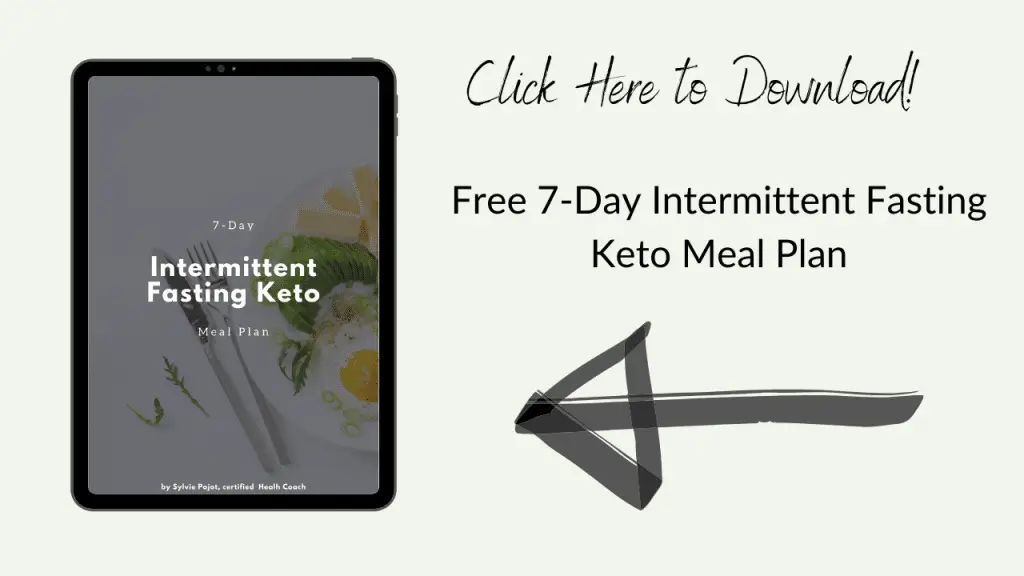
4. You Need to Heal Your Body
Sometimes, your body just needs time to heal before you lose weight. Intermittent fasting will help speed up the healing process by regulating your insulin level and your hunger hormones. Another excellent option is to try a modified fast. If you have read any of my posts before, you know all about modified fasting, but maybe you are new here.
Should You Try a Modified Fast?
A prolonged fast is very healing. Many studies done on animals demonstrate how it helps increase longevity, decrease inflammation markers, and improve metabolic health. The issue is that most of us cannot successfully get through a 3-5 day long water fast. Fortunately, there is another option. It’s a modified fast. A modified fast relies on severe calorie restriction and a specific macronutrient ratio to help trigger autophagy (the healing process). Learn all about modified fasting here.
Are You Eating the Right Foods?
Low carb, high carb, keto, paleo, vegan, etc. I have tried it all over the years I was struggling to lose weight. I have read multiple books and articles that explain the benefits of each eating style. I have heard multiple testimonies supporting each one of the options. All this to say: I don’t think there is one right way to eat. You probably already have your own preference already. Just stick with it but make sure it’s a whole food and clean version. Just as there is dirty and clean keto, there is dirty and clean vegan, etc., etc.

5. You Need to Surprise Your Body
I mentioned that intermittent fasting for weight loss is not necessarily a steady curve. There might be ups and downs and periods with no changes. If you are feeling amazing, just go with the flow and stick with what you are doing. At the same time, you may find it beneficial to change things up at some point. Just keep an open mind and remember that there are many ways to practice intermittent fasting. I love the Warrior Diet (or the 20:4 method), the Eat Stop Eat method, and the 5:2 method.
6. You Are Not Sleeping Well
Getting good restorative is so important when it comes to your overall health! It affects pretty much everything! Poor sleep will make you crave foods and make you more insulin resistant.
Sleep and Stress
Poor sleep and stress are intimately related. Moreover, stress can make it harder to lose weight.
Moreover, poor sleep and stress can increase cortisol production. Cortisol has many functions, including:
- Reducing blood pressure
- Balancing blood sugar
- Reducing inflammation
- Improving the wake-sleep cycle
However, as you may know, too much cortisol can contribute to weight gain as your cells become insulin resistant. The point is: learn to practice self-care and implement good sleep habits like going to bed early (your best sleep is before midnight), turning off screens one hour before bed, and avoiding food an hour before bed.
7. You Are Not Paying Attention
Now, you may say: What a weird and vague reason! I guess you are right, but I wanted to emphasize the importance of looking at intermittent fasting for weight loss as a journey. Don’t just focus on the end goal and obsess over the scale. Instead, pay attention to how you feel each day. Learn to trust your body and listen to what it’s telling you.
For example, when you feel hungry, are you also feeling drained and weak, or are you feeling energetic? Pay attention to these cues because they will help you readjust what you are doing as needed. When, you begin experimenting with intermittent fasting for weight loss, you may find that hunger always seems accompanied by feeling a little bit weak, but this should change with time. With experience, you will notice that sometimes you feel amazing, sometimes, you don’t. When you don’t, eat! It doesn’t matter if you were supposed to fast.

8. You Are Intermittent Fasting for Weight Loss Only Half-Heartedly
Now, after telling you to eat when you are supposed to be fasting, this point may seem odd. It’s a matter of balance like everything else. If you are always breaking your fast before you are supposed to, you most likely won’t achieve the results you want. Intermittent fasting for weight loss is not a magic cure and you need to actually go through with it to see results.
Dirty Fasting
It’s pretty common to drink bulletproof coffee for breakfast in the world of intermittent fasting. If you are not drinking the 440 calories coffee, you may still find that dirty fasting is hindering your weight loss. Read How Dirty Fasting Can Help or Hinder Your Weight Loss Progress if you think that you are breaking your fast during your fasting window.
9. You Simply Need More Time
Be patient with yourself. Remember that you are creating a lifestyle that you will sustain for a lifetime. This is not a crash diet. Learn to enjoy the journey.
Check Your Expectations
I find that when people are complaining that they are not losing weight with intermittent fasting even with a shorter eating window, the issue often comes down to expectations. It’s normal for weight loss to stall at times. Not everyone loses weight at a steady pace non-stop. Often, you may find that weight loss slows down or stops and picks back up a month later. Also, you most likely won’t be losing 10 lbs a month. The truth of the matter is, most women struggle to lose 2-4 lbs a month. Just keep going and experimenting, don’t despair! Slow progress is better than no progress!
